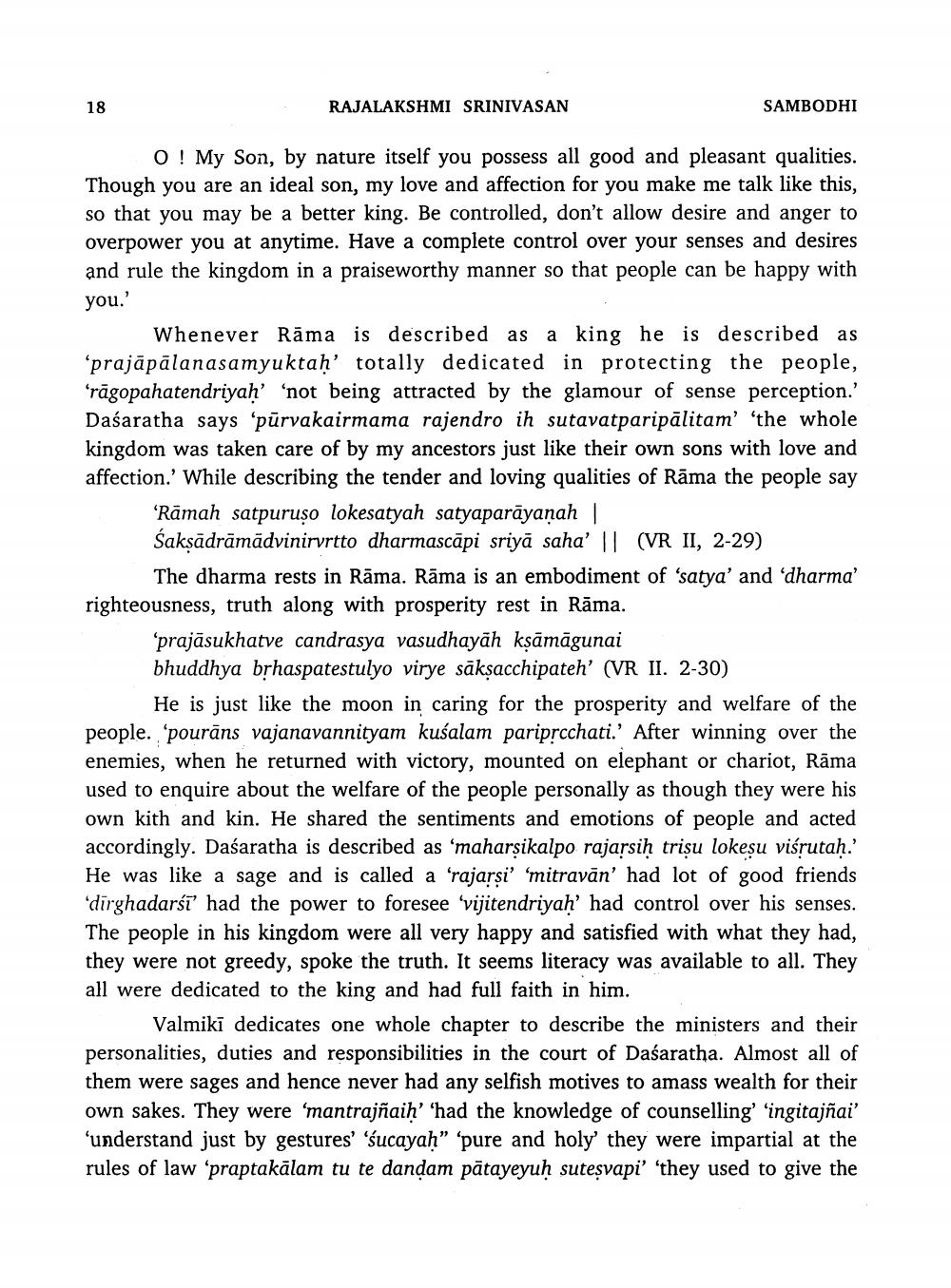________________
18
RAJALAKSHMI SRINIVASAN
SAMBODHI
O ! My Son, by nature itself you possess all good and pleasant qualities. Though you are an ideal son, my love and affection for you make me talk like this, so that you may be a better king. Be controlled, don't allow desire and anger to overpower you at anytime. Have a complete control over your senses and desires and rule the kingdom in a praiseworthy manner so that people can be happy with
you.'
Whenever Rāma is described as a king he is described as 'prajāpālanasamyuktaḥ' totally dedicated in protecting the people, ‘rāgopahatendriyaḥ’ ‘not being attracted by the glamour of sense perception.' Dasaratha says 'pūrvakairmama rajendro ih sutavatparipālitam 'the whole kingdom was taken care of by my ancestors just like their own sons with love and affection.' While describing the tender and loving qualities of Rāma the people say
‘Rāmah satpuruso lokesatyah satyaparāyanah Saksādrāmādvinirvetto dharmascāpi sriyā saha' || (VR II, 2-29)
The dharma rests in Rāma. Rāma is an embodiment of 'satya' and 'dharma' righteousness, truth along with prosperity rest in Rāma.
'prajāsukhatve candrasya vasudhayāh kşāmāgunai bhuddhya brhaspatestulyo virye sākṣacchipateh' (VR II. 2-30)
He is just like the moon in caring for the prosperity and welfare of the people. 'pourāns vajanavannityam kućalam pariprcchati.' After winning over the enemies, when he returned with victory, mounted on elephant or chariot, Rāma used to enquire about the welfare of the people personally as though they were his own kith and kin. He shared the sentiments and emotions of people and acted accordingly. Daśaratha is described as 'maharsikalpo rajarsiḥ trișu lokeșu vissutaḥ.' He was like a sage and is called a "rajarşi’ ‘mitravān' had lot of good friends dirghadarśī had the power to foresee 'vijitendriyah' had control over his senses. The people in his kingdom were all very happy and satisfied with what they had, they were not greedy, spoke the truth. It seems literacy was available to all. They all were dedicated to the king and had full faith in him.
Valmiki dedicates one whole chapter to describe the ministers and their personalities, duties and responsibilities in the court of Daśaratha. Almost all of them were sages and hence never had any selfish motives to amass wealth for their own sakes. They were 'mantrajñaih''had the knowledge of counselling' 'ingitajñai' ‘understand just by gestures' 'sucayah" "pure and holy they were impartial at the rules of law 'praptakālam tu te dandam pātayeyuh sutesvapi' 'they used to give the




